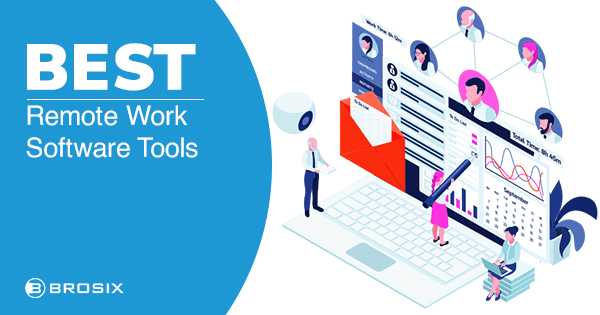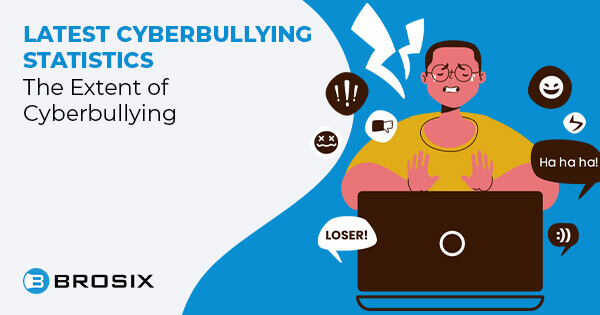When you give up a full-time job for freelancing, do you think of crash and burn to show around?
Heck, no!
Freelancing is about the flexible life, working from paradise, and work-life balance. It’s all about better pay, reputation, and dozens of clients, isn’t it? After all, most of us dream of self-employment and freedom from offices and corporate culture.
But here’s the problem:
Not everyone is born for remote work and freelancing. There’s nothing wrong with that, and it’s okay to try this out and then see it’s not for you, coming back to the 9-to-5. The tragedy is when you could have built a successful freelance career but gave it up just because you missed one tiny yet crucial detail:
Planning.
Stellar time management skills are what make freelancing not everyone’s cup of tea. When you overestimate your abilities, avoid efficient communication, eliminate possible force majeure, and praise multitasking, — you risk failing again and again.
What to do?`
[bctt tweet=”Top 5 Planning Mistakes You Make as a Freelancer”]
Master the art of time planning, avoiding the most common mistakes freelancers make when trying to organize their work for better efficiency. Here they go:
1) You apply for new projects like crazy
Oh yes, this is a #1 mistake of most work-from-home fellows. They imagine themselves full of loyal clients, affordable deadlines, and their inspiration being enough to stay productive all the time. They believe that the more work and clients they “hook,” the more money they’ll get.
So, in fear of missing something and stay with no clients, you catch at every new task that comes, trying to seize the unseizable.
I was the same when I started my freelancing career back in 2012. I was sure that I’d be on time with all the tasks if I spent all the time on the computer. Often, I forgot about dinners or merely ignored them, taking snacks and coffee instead.
Result? Health problems, spending time and money on doctors, tons of stress, and procrastination. Who needs this for productive work and a happy life, huh?
The planning mistake here is planning as many tasks as possible for one day. As a freelancer, you need to know your abilities and scope of work to do. Planning is not about “do as much as possible” and “work like a packhorse to succeed.” Remember about prioritizing.
Applying for every available gig can get you stuck doing work you don’t like. It leads to frustration, disappointment, and burnouts. What you need to do is formulate the criteria of your ideal clients who will respect you as a specialist and whose values will meet yours.
Celine Rogue, an experienced freelancer and a coach, agrees:
“The foundation of successful freelancing is in being very specific about who your ideal clients are and working only with people who fit that description.”
Also, do your best to set SMART goals as a freelancer and establish a system that will keep you productive.
For some, the system is about putting everything (literally!) on a calendar. For others, it’s about setting a timer and working during a narrowly defined time. The trick here is to have a system; and therefore we come close to the #2 planning mistake of some freelancers:
2) You don’t have a system
Whatever you want to get out of your freelancing, — more money, a flexible schedule, or an opportunity to pay all the bills and put a little aside — you need a system to accomplish that. With no business plan, including both long-term and short-term goals, as well as budget to achieve them, nothing will work out.
Short-term planning is what you need to avoid sleepless nights on projects. Most freelancers don’t pay enough attention to it, failing long-term goals achievement as a result. To deal with short-term planning, consider this:
Evaluate and estimate each client and project that comes to you. If some of them come at the same time, it will help to prioritize and give up those of lower importance.Before starting work on a project, write a descriptive business proposal email with details of what your clients can expect from you to keep things crystal clear from the beginning.
Once started, divide all projects into stages. It will help you see how much time and energy you’ll spend on each step, and therefore you’ll have an opportunity to make all necessary modifications in your plans.
Leave some time in your calendar for any force majeure that might appear: corrections, problems with approval, delivery, payments, etc.
Take the most out of technologies: use scheduling apps to manage your time and plans, and consider different business tools you might need as an independent specialist.
Once you decide on goals, write a detailed business plan to formalize them. Always keep track of your records: expenses, payments due and received, invoices, bills, etc. Yes, it doesn’t sound like fun for freelancers willing to dive into creative projects, but there will be no success without this discipline.
Ashley Abramson recommends hiring a financial planner:
“Because freelancing has slow and busy months, and every client has different payment terms, it can be somewhat difficult to plan out a budget. Working with a financial adviser can help you manage income, come up with a strategic plan for paying off debt, and think long-term about taxes and investments.”
Sure, it may be enough for you to have an Excel sheet and write down all the expenses there. Or feel free to use personal finance software. Just make sure to track all work-related spending so you wouldn’t miss any opportunity to save more money.
3) You forget about self-growth and self-promotion
Another mistake would be to work on a few freelance projects simultaneously and not make any other plans regarding your professional growth and promotion. Doing so, you risk working 10-12 hours a day, driving yourself into the endless circle of stresses, procrastination, and burnouts.
You can’t be a productive and successful freelancer if you don’t manage your self-development and life in general. Remember that freelancing is not a one-person game: You need to plan time for networking so people would know you as an expert and come to you with orders.
Building a robust network is the best long-term investment you can make. But for that, you need to work on your soft skills development. Do you know how to build relations with people? Do you know how to understand if you need this person? Can you say no to toxic people? All this requires time to master.
And now, for the most remarkable part:
A big mistake of many freelancers is that they don’t plan any training and self-promotion. To succeed in the niche, you can’t disappear from the media scene!
Your business website with the kick-ass content to build awareness and trust, writing guest articles, taking part in niche conferences, optimizing your LinkedIn and other professional social media accounts — it takes time and energy. Still, it would be best if you considered these aspects for a stellar freelance career.
How to find time for all this?
Think of prioritizing and proportions. When with tons of clients and projects in the course, plan less time for self-promotion. And vice versa, when you have slow months, — direct all the efforts to self-training and promoting your services.
4) You don’t use any secure instant messenger for communication
Inefficient communication channels are one of the biggest productivity killers for freelancers, especially when they work with clients of diverse cultures and continents. Observing time zone differences, cultural holidays, and most comfortable communication channels for every client, you risk going mad and wasting tons of time.
And given that all proposals, contracts, submissions, and everything in between come in a written form, it would be a big mistake to use different messengers for business communication. Otherwise, a freelancer quickly gets lost in the labyrinth of clients and information, failing their project management right down.
This is especially the case if you have a productivity-killing habit, such as replying to every business message right away. Different messengers with dozens of discussions make it easy to miss essential details or confuse one client to another.
All-in-one collaboration solution would be the best decision to plan a freelance communication with clients. Instant messengers save from switching between numerous channels for repeats, reconfirms, tasks update, and other frustrating moments that distract freelancers from work.
The most reliable solutions, such as Brosix, could help with planning your work, managing productivity, and communicating with clients efficiently.
5) You don’t schedule working hours

And last but not least, some freelancers neglect their physical (and mental) health! They work with no boundaries and schedules, and they don’t define a number of hours to spend at work.
Yes, freelance is about time freedom; but a mistake here would be to ignore scheduling and follow the motto a la “I’ll work whenever I want.” Your working time will get out of control without clear boundaries, and you may soon find yourself replying to emails before brushing your teeth or editing documents in bed before you go to sleep.
Result? Your health suffers, and stresses with burnouts don’t take long in coming.
Freelancing is your work, so make sure to create a schedule. It’s not about working from 9 to 5; it’s about spending a definite number of hours per day at projects, not sacrificing any extra time for them.
As Julia Cameron says,
“As artists, we must realize that we have to maintain this artistic ecosystem. If we don’t give some attention to upkeep, our well is apt to become depleted, stagnant, or blocked. Any extended period of piece of work draws heavily on our artistic well.”
She calls it
“filling the well:” it’s when you plan some time to recover from freelancing (travel, spend time with friends, you name it), and never work on weekends. Or, when you allow yourself at least one day off a week and make it a day when you don’t even think of business deals.
Just replace Julia’s “artistic” with your “freelancing,” and here it goes: the need for balance in everything if you want to work less but more efficiently.
Remember:
For efficient time planning, you shouldn’t turn yourself inside out, trying to realize all the ideas that come to your head. Make it a habit to evaluate every new project, business activity, or business idea on its preparation stage, and don’t spend your working hours on those with the low effort-benefit ratio. In other words, make sure if the game is worth the candle.
And don’t forget about cheat meals from your freelancing. The above “filling the well” tactic is something along that line, but don’t confuse cheat days with days off!
A “cheat meal” day is your working day, but you need to spend it without work. It helps to recharge your batteries for more energy the next day. Just make sure it doesn’t align with the day of an urgent deadline and don’t make it your everyday habit. Otherwise, you risk failing your business communication and freelancing career once and for all.
Over to you
As a freelancer, you want to organize everything the best you can. You want to be more productive, take as many projects as possible, and complete all of them successfully for your clients to love you and order from you again.
It’s a long process, and mistakes are inevitable on the way to success. So, try and fail, but don’t give up! Consider smart goal setting and time planning, follow the above tips to avoid the most common mistakes — and you’ll reach a high level of productivity as a freelancer.
[bctt tweet=”Top 5 Planning Mistakes You Make as a Freelancer”]
Do you have any secrets for smart planning? What other freelancer mistakes and tips to avoid them would you add to this post? Don’t hesitate to share your thoughts with us!








